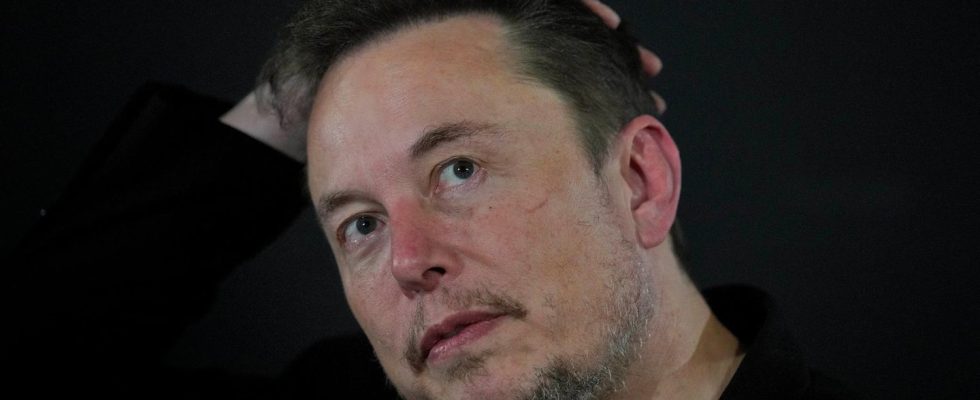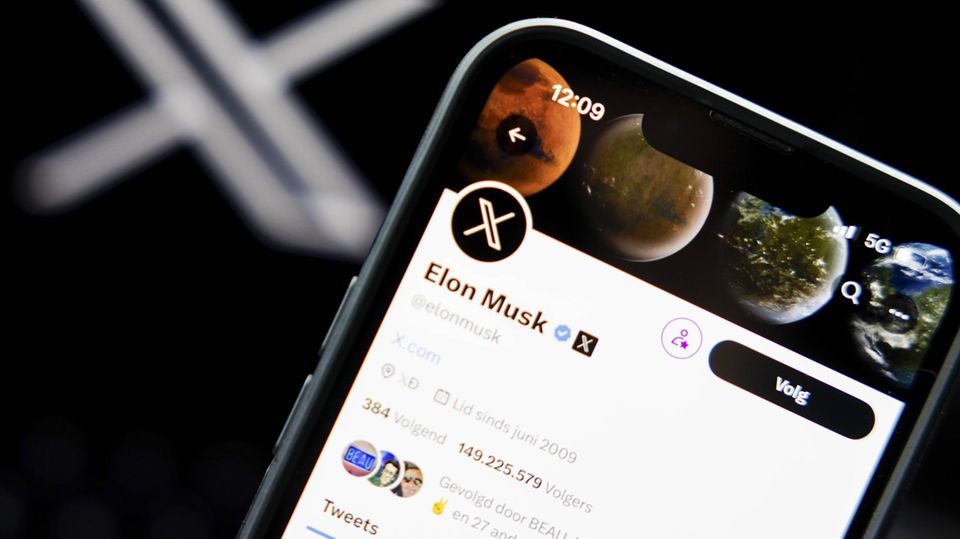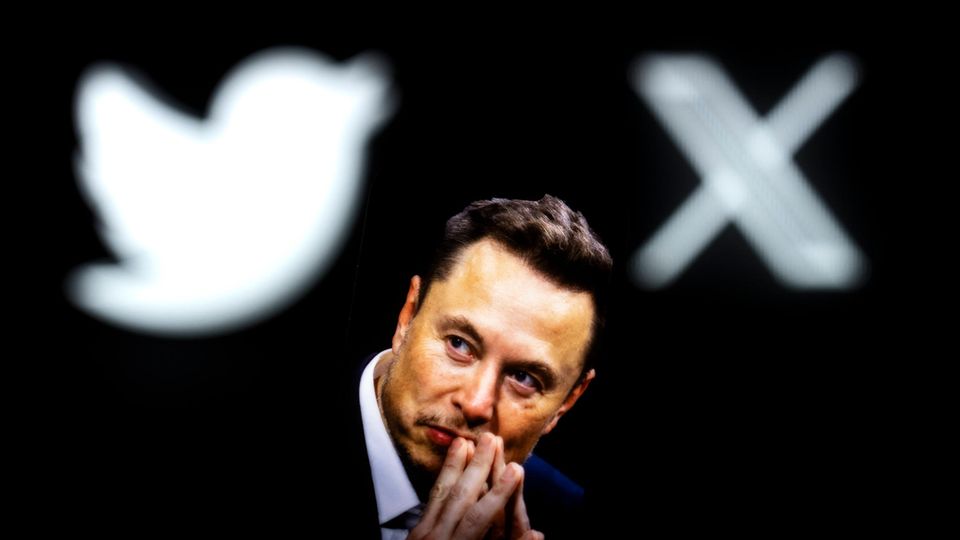“Pizzagate”
Elon Musk is reigniting a long-debunked conspiracy theory – more and more users and customers are leaving X
Elon Musk doesn’t always seem to be aware of his responsibility towards his 164 million followers
© Kirsty Wigglesworth / DPA
Since 2016, “Pizzagate” has been a rumor about a child porn ring in a pizzeria. This has now been refuted several times. That doesn’t stop the richest man in the world from continuing to spread the conspiracy theory.
This has already had real consequences: In December 2016, an armed man stormed into the pizzeria in question and wanted to free the children who were supposedly hidden there. He shot at a door lock and a computer but surrendered after discovering that the basement where the children are being held, according to “Pizzagate” supporters, does not exist. As a result, the man had to go to prison for four years and was also sentenced to a fine.
Such an “attack” could have had worse consequences, which is why it is surprising that many people still believe in “Pizzagate” – apparently including Elon Musk.
Elon Musk made several references to “Pizzagate”
As the Washington Post reports, Musk recently mentioned the conspiracy theory in a supportive manner. As screenshots of the now-deleted post on X, formerly Twitter, show, he referred to “Pizzagate” with a so-called meme. He showed a montage of images from the US hit series “The Office” in which two people are talking.
In the conversation recorded there it is said at the beginning, “‘Pizzagate’ is real,” to which the other person replies, “No it’s not, we have experts.” In the third part of the sequence of images it says: “They kidnapped children”. Again the other person replies: “But we have experts.” The penultimate picture says: “Your expert just went to prison for possession of child pornography” – the last picture shows an incredulous look from the person who previously denied “Pizzagate”. Musk published the image with the sentence: “This seems at least a little suspicious.”
Musk is referring to James Gordon Meek with this meme. Meek is a former ABC reporter who was incorrectly named by the New York Post as the journalist who exposed Pizzagate. This year, Meek was initially arrested for transporting and possessing child pornography, but later admitted the crimes. He was sentenced to six years in prison.
Musk ignores the fact that Meek neither exposed “Pizzagate” nor played a significant role in the research surrounding the conspiracy theory, as does the numerous evidence that the alleged child porn ring demonstrably does not exist.
As NBC reports, it wasn’t the only time Musk gave “Pizzagate” a platform. According to the report, the world’s richest man mentioned the conspiracy theory five times in just two weeks.
Musk’s behavior “incredibly dangerous”
In the Washington Post, Logan Strain, a specialist in conspiracy theories, described Elon Musk’s unfiltered distribution of such content as “incredibly dangerous.” He added: “It is very disturbing that he confirms a conspiracy theory that has led people to destroy their lives and commit crimes.”
His company X is already feeling a direct consequence of his statements. Because as “The Washingtonian” reports, the “Washington Post” stopped advertising on its platform. This means that the wide-reaching newspaper joins a whole series of former advertising customers who no longer want to appear with advertisements on
After Apple put its collaboration with The layoffs range from IBM, Sony and Lionsgate to Airbnb, Amazon and Coca-Cola. According to the New York Times, other companies are currently considering joining. The users of the platform have already noticed the significantly reduced quality of the advertisements – the remaining or new advertising customers who, for example, offer counterfeit watches on X are constantly being discussed.
Musk is also becoming increasingly thin on the user side: Aside from his blue-haired following, the Leipzig public transport company, the mayors of Paris and the community-oriented media company Correctiv recently canceled their accounts. The reason given by the alumni again and again is the controversial owner of the platform and his controversial content, which he flushes across users’ timelines.
Sources: Washington Post, New York Times, NBC, Washingtonian, Corrective, LVZ, RND




